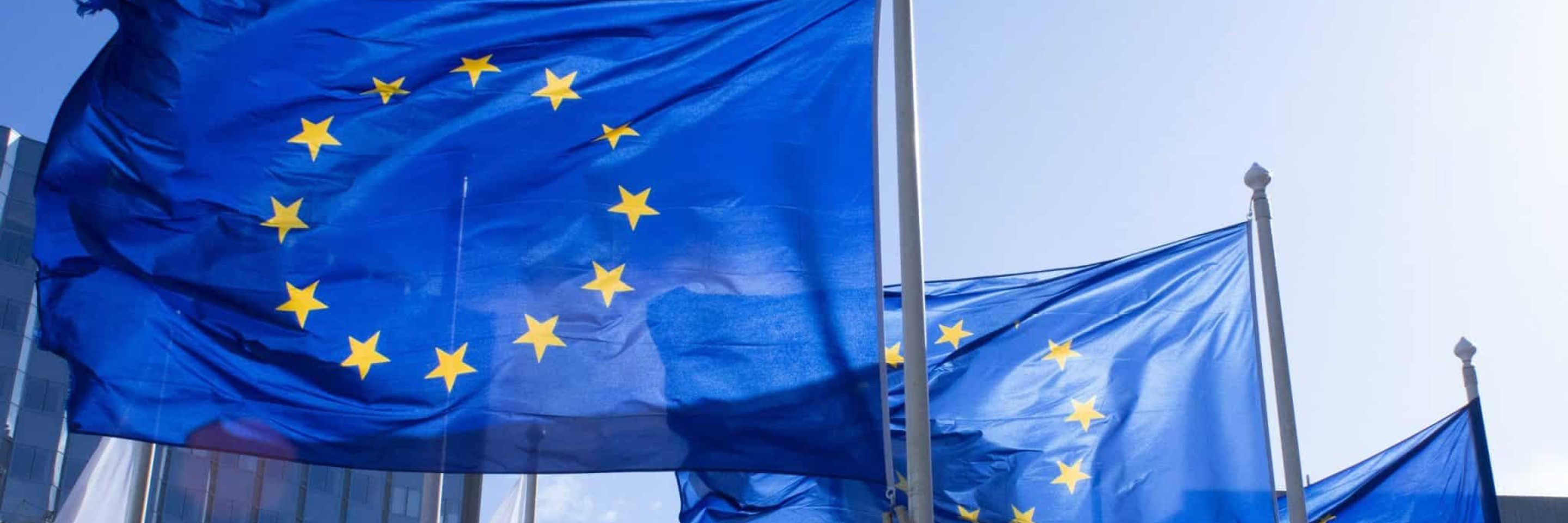
New sustainability reporting directives are considered to be key to the European Commission’s carbon neutral ambitions, but experts from Baker Tilly say it remains uncertain how it will be implemented and how it will impact mergers and acquisitions.
For nearly the past decade, sustainability in business has been one of the top priorities for the European Commission.
Environmentally, the sustainability push culminated last year, as the European Union vowed to become carbon neutral by 2050 and reduce greenhouse gas emissions by 55% by 2030.
A key plank of reaching that goal is stricter regulation on how companies can do business, and then report on such business.
Since 2014, Europe’s biggest companies have been saddled with additional reporting obligations, not only focusing on environmental matters, but also extending to social and governance.
Under that mandate, known as the Non-Financial Reporting Directive (NFRD), companies with more than 500 employees have been required to divulge information relating to their environmental impacts, social issues, treatment of employees, respect for human rights, anti-corruption and bribery, and diversity on company boards.
In addition to helping achieve the EU’s carbon neutral goals, the directive has had a marked impact on the M&A sector, keeping stakeholders and investors better informed on non-financial information, such as how a company creates value and the risks of investment.
Initially, big business was the target, with the continent’s largest listed companies required to report select information on how they operate and manage social and environmental challenges since 2014.
The ultimate purpose was to better inform stakeholders and investors around non-financial information, with social and environmental issues top of mind when considering companies’ value creation and the risks of acquisitions.
In the coming years, those reporting requirements will be greatly expanded to cover all large undertakings and all listed small and medium-sized enterprises (SMEs) operating in the EU.
This new mandate, Corporate Sustainability Reporting Directive (CSRD), will – subject to final political agreement – apply by January 1, 2024, while SMEs will have an additional two years to comply.
The EU is acting on demands from investors and other stakeholders for enterprises to be more transparent with the reports across the three pillars of ESG – environment, social and governance.
It claims there is evidence that company reporting at present is not sufficient.
Currently, around 12,000 companies across the EU are subject to the NFRD, while once the CSRD comes into effect, around 50,000 companies will have to comply with the new requirements.
While similar, there are key differences between the current reporting regime and the CSRD.
“The real economy coming into the game is an indispensable piece of the sustainability agenda.”
What was labelled as “non-financial reporting” now moves ahead as “sustainability reporting”.
In addition to applying to a much wider range of companies, the new regulations are more structured and detailed, with a new set of mandatory standards being developed by the European Financial Advisory Reporting Group (EFRAG).
EFRAG anticipates that the first set of standards, which will be tailored to EU policies, will be adopted by October, while a second set will be put in place next year.
Baker Tilly Germany Partner Markus Lange, whose key areas of expertise include banking and financial market regulation, says expanding reporting requirements to most European enterprises will be the key to achieving the European Commission’s climate neutral goals.
Dr Lange says to date, the European Commission’s sustainable business agenda has been focused largely on the financial services sector.
“You need to start somewhere and industry, or the real economy, is not regulated like the financial services industry is,” he says.
“The world will not be saved by, Deutsche Bank, for example, although it is a very big institution, working towards being climate neutral themselves.
“They need their clients to be climate neutral. The real economy coming into the game is an indispensable piece of the sustainability agenda.
“This is where the game will be won or lost, so to speak.”
However, Dr Lange says there is considerable uncertainty around how the directive will be applied, and he has concerns about its complexity.
“It may be much more complex than what we see today, from the point of view of where the information stems from, what the categories are and how the information will be produced,” he says.
“There are standards at the EU level, at the national level, and there are also international standards for financial reporting, and there are also international sustainability standards to come.
“Then you have, for EU purposes, the European Finance Reporting Action Group, and they have produced several working papers on the CSRD.
“These working papers are much lengthier than the directive itself, so the complexity is likely to be enormous.”
In that regard, Oliver Köster, corporate law and M&A expert at Baker Tilly Germany, says many companies are questioning the need for the additional regulation.
“The question for me is why report it and what is the consequence out of it, or are there any consequences out of it?”
Mr Köster says many of the new directive’s requirements were already covered in existing reporting obligations, both at an individual country and an EU level, and represent an unneeded burden on business.
“If you read the text of the directive, immediately the Commission says, ‘if you don’t know how to report, then look at our guidelines’,” Mr Köster says.
“And then the guidelines are a wishy-washy approach of ‘you may be’, and ‘you should have’ and so on. And my question is why?
“If you look at the information set that has to be disclosed under this directive, nobody would disagree that enterprises should be operating in this manner.
“Of course, a company should take care of environmental matters, of course you have to respect human rights, but the question for me is why report it and what is the consequence out of it, or are there any consequences out of it?”
M&A perspectives
On the flipside, corporate law and M&A expert at Baker Tilly Germany Bernhard Rehbein says his concern is not why the additional regulations are being introduced, but rather how businesses and legal professionals will adapt to the new regime.
Mr Rehbein says until the reporting standards are released, there will be uncertainty around how the directive will work from a due diligence point of view.
“The situation at the moment from an M&A perspective is we know it has to be done, but we don’t know how,” he says.
“In the end, it will more or less be a compliance issue.
“Just like every enterprise needs to file its financial statements and if they don’t, they’ll get fined, there would be something from a corporate governance point of view that we would highlight as risk in our due diligence.
“Maybe it will be an easier way to work, because most of the aspects included in the CSRD or proposals for reporting are issues we already cover in our due diligence inquiries – what environmental risks do you have, what is your employment rotation ratio, how many employees have joined and left in the last year and so on.
“But then it comes to the question, and this is the frontier of auditors’ work, who will be responsible for checking whether the reporting obligations or whether the diligence inside the enterprise in preparing the reporting was diligent enough?”
“If a company can demonstrate that they are sustainable, then it will be attractive because investors all over the world are seeking to be greener than they are at the moment.”
Mr Rehbein also raised concerns that the M&A timeline could be extended by companies having additional reporting requirements.
“What we might find in the reporting is additional risks that the buyer needs to look at,” he says.
“If a company reports additional risks, the investor will want to go into detail and the process will be stretched.
“But in the best case, the target has already eliminated such risks so it will be just a matter of flipping through the executive summary and saying ‘check, check, check, all done, go for it’.
“If a company can demonstrate that they are sustainable, then it will be attractive because investors all over the world are seeking to be greener than they are at the moment.
“If they see something with a green flag on it, they will acquire it. They prefer targets that are cleaned up.”
Mr Köster agreed that while the CSRD is expected to be a complicated undertaking and has the potential to lengthen the M&A process as it is first implemented, in the future it may facilitate an uptick in transactional activity.
“From a theoretical point of view, you can get the idea that it will make the process easier,” Mr Köster says.
“From a price finding perspective, you could say you get more for your money.
“If the data is better prepared and the reporting is more diligent, it could be a selling point.”
Changing perceptions
For Dr Lange, much of the uncertainty and challenge around the implementation of the CSRD is to do with perception.
He says the recent conflict in the Ukraine has demonstrated that the perception of what is a sustainable business can change, almost in an instant.
“In terms of social and governance, and companies’ business models, some of this can be quite arbitrary,” he says. “The same applies to political priorities.”
“What we have seen recently in the south-eastern part of the EU with Russia and Ukraine, this has quite quickly shown to people that political situations can change the perception of what is sustainable and what is not quite quickly.
“Investors may need to apply their own judgement.
“I wouldn’t anticipate that non-financial reporting can apply any sort of standard that people really would endorse.”
Dr Lange says that while there are certain financial standards that are accepted as valid around the globe, there is a long way to go for sustainability reporting.
“The perception can change quite quickly and the standards for reporting will not be meaningful any longer,” he says.
“If you look at a company like, for example, Rheinmetall, which is a listed German armed forces manufacturer, the share price has more than doubled since February 2022.
“If you did due diligence on it some months ago and you do it now, it would be very different.”
Global impact
While the CSRD will not apply outside of the EU, it is nonetheless expected to have wide ranging impacts in other nations, particularly for those companies that have European operations but are headquartered elsewhere.
In Mexico, for example, there is not yet any formal specific regulation in place regarding ESG reporting, nor are there any imminent plans to institute any new reporting regimes. It is necessary to dig into several regulations to integrate all compliance matters applicable to each entity.
Compliance with ESG principles, according to Baker Tilly Mexico Legal Attorney Emily Acosta, differs greatly across industries in Latin America.
“Each specific industry has its different particulars,” Ms Acosta says.
“When we say as an example, the social and governance part of ESG, that’s something that all of them must have.
“There’s going to be a lot of noise about these new directives, even though they’re not specifically applicable to Mexico.”
“When we look at the environment, of course it is still a must, but the level of compliance differs from the activity developed by each entity.”
However, Baker Tilly Mexico Senior Legal Services Partner, Adrián Bueno, says sustainability reporting is already a key element of the due diligence process in M&A.
Mr Bueno says the European CSRD will likely result in more transparent ESG reporting throughout the M&A process.
“There’s going to be a lot of noise about these new directives, even though they’re not specifically applicable to Mexico,” he says.
“It will raise awareness about the necessity of making these kinds of reports, and if there is a need to do it, of course companies will comply, particularly those that must raise capital.
“This is something that will become more and more common as a necessity in non-financial reporting, in order to get more capital into the company.”
Those that do comply, Mr Bueno says, generally perform better financially than those that don’t, and are certainly more attractive from a foreign investment perspective.
“The companies that are really interested in getting real metrics about ESG are modifying their own bylaws to include specific obligations about it,” he says.
“In the past few years, there has been a very significant increase of internal regulatory matters, particularly regarding anti-corruption policies.
“There is a very important penalty here in Mexico that can result in the liquidation of the company if there is any infraction regarding corruption.
“That’s a good example of how internal laws are pushing to comply with ESG metrics.”
As the CSRD is rolled out in Europe, Mr Bueno says Mexican companies and multinationals that operate in Mexico will be watching closely to see what benefits the directive will produce.
But while the directive will be monitored closely, Mr Bueno said there were certain challenges in getting widespread ESG compliance across industries.
“Given that one of the aims of the directive is to amplify the standardisation of what companies must do to comply with the reporting, we believe that multinationals that have operations in Mexico will comply with this,” he says.
“But here in Mexico, around 60 or 70 per cent of the companies are family companies.
“Our experience is that they are not entirely compliant with the specific ESG regulations.
“We deal with a lot of them and one of the first things that we review with them is their corporate governance, then of course we will look at social, and then the last one is environmental, if I were to put it in order of importance for the companies.”
Ms Acosta said a big part of the challenge is that there is less regulatory pressure from authorities in Mexico.
“When we look at Mexican entities that have investment directly from the European Union or even the United States, they are more aware of ESG because of the regulations in place in their own countries,” she says.
“Once most of the entities that have a shareholding or their parent companies are based in the EU or in the US start complying, it will have a domino effect.”
“But when they’re here in Mexico, they do not get that same pressure from the Mexican government.
“They’re a little bit more resistant. When we do a due diligence report or we do any type of audit or health check when it comes to ESG compliance here in Mexico, we find that a lot of companies are not really that aware.
“It is not something that is encouraged by the Mexican government, and once they become aware, the first question that comes to their minds is how ESG is going to impact them financially.
“But of course, when they do not see any enforcement of any type of sanctions, it becomes the last of their worries.
“Their other question is how is ESG applicable to others, and what are others doing?
“But unless it impacts their profits, they really don’t care.”
Ms Acosta acknowledges, however, there are some exceptions, which could be considered trailblazers in the Mexican ESG space.
“There are, however, family companies that are really invested in this, and when they actually reach out to us, they are the ones raising their hands saying, ‘I need to comply with everything I have to, so I need your help’,” she says.
“But it’s a low percentage of all the businesses in Mexico.
“Once most of the entities that have a shareholding or their parent companies are based in the EU or in the US start complying, it will have a domino effect.
“And it will even impact the family companies that are completely 100% Mexican owned.
“At some point, when they try to attract investors, that’s when they will gain the awareness of the benefits of reporting on and complying with ESG principles.”









